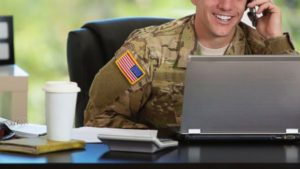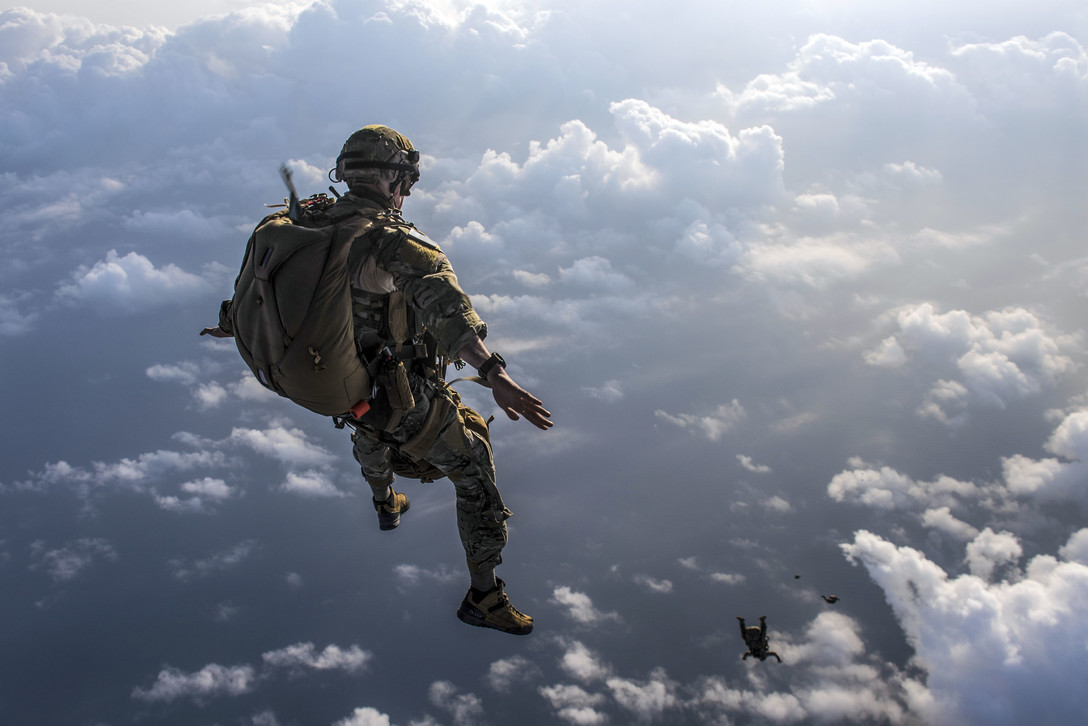
Photo courtesy of www.aidaveteran.com
If you are not a veteran, you may have some thoughts about what PTSD is and how it may impact veterans. If you’re a coworker or employer of a veteran, you might think to yourself, “I love veterans. I thank them for their service. I shake their hand on Veteran’s day.” When it comes to sitting at the desk next to them, however, you might be a little more concerned. You might say to yourself, “I really need to be careful around Joe, because he’s a veteran. That means, a) he probably has PTSD, and b) he might have “an episode.”
Walking on eggshells around a veteran because you think they may be a crazy combat vet is one of the most certain ways of causing “an episode,” whatever that means. Are veterans opinionated? Certainly. Everyone is. Have veterans seen and done things that you haven’t? Of course. How boring would it be to only be surrounded by people like ourselves? If diversity and inclusion is important to you, then extend that diversity and inclusion to veterans, who are used to the diversity that comes along with serving in the military.
“Yes, okay, but we have to think about the safety of our team.” Absolutely. And you could do much, much worse in an emergency than to have a veteran on your team. Have you ever heard the story about Rick Rescorla? Rick was a Vietnam veteran, and a pretty well-known one. Hal Moore and Joseph Galloway wrote We Were Soldiers Once…And Young, and Rick Rescorla was the image of the infantryman on the front of the paperback edition. One of my favorite characters in the book, Rick was commended for his leadership and presence in battle.
Fast forward nearly forty years. Rick is now employed by Morgan Stanley, and on September 11, 2001, he is on duty as the Director of Security in the Morgan Stanley offices at the World Trade Center. During the attack, he once again implemented his military training and led his colleagues to safety. The company only lost six of it’s over 2,000 employees, thanks to the evacuation plan in place and his leadership during crisis. Rick Rescorla was one of those six.
Need a more recent example? Check out this article about what was happening on campus during the recent attack at Ohio State University. “We have quite a few military men in our class, who are actually all standing by the doors, keeping us safe,” one eyewitness told the media. So if safety is a concern for you, then having more veterans around, not less, is a good move.
I’m not making the assumption that all employers are biased against veterans, although it may seem that way. It’s just that I hear the bias often enough to know that it’s real, and veterans face it every day. Here are common beliefs about veteran mental health that aren’t entirely accurate.
Most combat veterans have PTSD. Posttraumatic Stress Disorder, as well as Traumatic Brain Injury, have emerged as the signature conditions of the most recent conflicts. Popular media, going back to Rambo, Platoon, Apocalypse Now, and The Deer Hunter have caused American society to view Vietnam veterans, Gulf War veterans, and Post 9/11 veterans to be psyche-scarred misfits that can barely take two steps without lapsing into a flashback and having a meltdown. Compare that to World War II movies, in which the heroes destroy machine gun bunkers and save the day against all odds. Are either of them accurate? Not likely. Studies conducted on combat veterans of separate areas indicate that PTSD is much less likely than assumed. For Post 9/11 veterans who served in Iraq or Afghanistan, only between 11%-20% of veterans meet the diagnostic criteria for PTSD.
Veterans with PTSD can’t function in the workplace. PTSD is a mental health condition that can be managed, and many individuals who are diagnosed with PTSD are still able to function and thrive in normal society. On the Today show, the entertainer Lady Gaga revealed that she had been diagnosed with PTSD as a result of a sexual assault that occurred when she was 19. She is still successful, still able to function and pursue her chosen profession. Veterans have the same ability.
Veterans have to take a bunch of meds or they can get out of control. The idea here is that Vets need uppers in the morning, downers at night, benzos to keep them calm and stimulants to keep them motivated. It’s not just mother’s little helper, veterans seem to need a whole platoon full of helpers to keep themselves in check. In my personal experience, however, that’s not always the case. Medications can be prescribed in order to provide the veteran space to be able to figure out how to manage mood and emotion, but skills can be learned that do the same thing.
Combat Veterans are suicidal. Everyone knows about the statistics. It used to be 22 veterans a day, which was based on an incomplete study. It’s now 20 veterans a day. Even that number is likely not accurate, but a statistical estimate. It is often inaccurately assumed to be targeted to the current-era veteran, however, and even more often to a combat veteran. Combat experience does automatically increase suicide risk: a 2013 study published in the Journal of the American Medical Association found that there were three significant risk factors in soldiers and veterans. Being male, having a previously diagnosed mental health condition, and having a substance abuse disorder. The article specifically states: “None of the deployment-related factors (combat experience, cumulative days deployed, or number of deployments) were associated with increased suicide risk in any of the models.”
As you’re considering whether to work with veterans or not, it would be beneficial to both you and the veteran to have a deeper understanding about veteran mental health. The stigma against veterans is nothing new; in 1890, Rudyard Kipling wrote the poem, “Tommy” about how a British soldier and the contrast between the treatment they get from their community in peacetime and in a time of war. One of my favorite lines, mostly because it’s just as true now as it was 125 years ago, is:
For it’s Tommy this, an’ Tommy that, an’ “Chuck him out, the brute!”
But it’s “Saviour of ‘is country,” when the guns begin to shoot
Did you enjoy this post? Please comment below and share with your network in order to join the conversation regarding veteran mental health. You can sign up for updates from Head Space and Timing and follow Duane, a combat veteran and mental health counselor, on Facebook, Twitter and LinkedIn.


